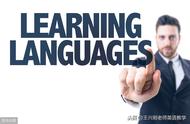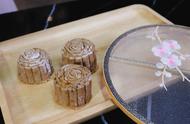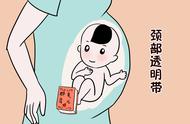新概念二册第四单元词组与语言点
Lesson73-74
一、常用词组和语言点
1.play truant(from school) 逃学
2.as far as they get 他们顶多到这种程度而已(as far as“到……程度”)
3.in the mean time 在此期间,同时
4.pick up “逮捕”的意思(除此之外,pick up还有①用车去接某人②学会③收听到等意思)
5.put…to shame 使……蒙羞,使……相形见绌
6.limelight 原义为舞台照明用的“石灰光”,其引申意义为“众人注目的中心”所以标题“out of the limelight“意为”舞台之外“
7.“Why don’t/doesn’t 主语 动词 ?”
“Why not 动词 ?” 为什么不……(用来提出建议)
例:①Why don’t come earlier?
②Why not come earlier?
8.in case 假使,万一,免得。 它通常用来引导条件或目的状语从句,当句子表示将来的时间时,in case后面必须用现在时态或should/might 动原。例:I’m taking a raincoat with me in case I need it. 我随身带着雨衣,以备不时之需(表目的)。In case he comes/should come,give him the book.假如/万一他来的话,把这本书给他。(表条件)
9.be hard on sb. “对……(过分)严厉”
Lesson75-76
一、常用词组和语言点
1.fly off course 飞行偏离航线
2.She heard planes passing owerhead 她听见头顶有飞机飞过。(passing overhead是现在分词短语,作宾语planes的补足语,另外see,hear,watch等感官动词后还接不定式。)
3.It is not long before 句子 不久……(before是连词,引导的是时间状语从句,long作表语。注意不要与词组“long before”或“before long”的用法相混肴。)
4. among 用于“三者或三者以上”
例:①Tom sat between Jill and Jennifer.
②The Prime Minisiter was among those present.
5.finish doing 做完 6.day and night 日日夜夜
7.at the end of 在……末尾,在……尽头
Lesson77-78
一、常用词组和语言点
1.take the plates of… 给……拍片子 2.die of… 因(患)……而死
3.fall to pieces 散掉,成为碎片
4.I had all the usual symptoms
of someone giving up smoking 其中,someone giving up smoking是独立结构,作of的宾语。
5.make no effort 根本不作努力(make an effort努力)
6.cut…open 把……切开(open做宾补) 7.prove to be 证明是
8.an article entitled… 题目为……的文章 9.keep on doint
Keep doing 不断地做……
10.offer sb.sth. 主动给某人某物
11.urge sb.to do sth. 力劝某人做某事12.return to normal 恢复正常
13.once more 再一次 14.point out 指出
Lesson79-80
一、常用词组和语言点
1.take charge of 照顾(相当于take care of)
2.only on one occasion have
I ever felt frightened 这一句为倒装句,即have放在主语之前。如果only加上一个状语放在句首,那么要用倒装语序(例如:Only by working hard can we reap a bumper harrest.
如果only后面跟的不是状语,则无需倒装。
又如:Only two of us got the chance to continue the further education.)
3.take off 起飞touch down 着陆 bain height (飞机)爬高
4.on board 在……(如飞机、船等)上
5.be made of 用……制造(指原材料没有发生化学上的变化,能看出原材料)
be made from 用……制造(看不出原材料)
6.of all time 空前的
Lesson81-82
一、常用词组和语言点
1.change into 换衣 如:He changed into his new dress and went to visit his girl friend.
change into/to还可表示“把……变成”
2.here and there 到处3.stand to attention 立正 4.at times 有时,时常
sometimes 有时 some time 一段时间 Sometime 某时
5.out at sea 在远海
6.no ordinary fish 根本不是一条普通的鱼,no比not的否定意义更重。试比较:
①He’s no teacher at all.(旨在说他根本不会教书)
②He’s not a teacher at all.(仅表他不是从事教师这一职业的)
7.make every effort 尽一切努力
He made every effort fulfill his ambiton.
8.make sb.do make,let,see,watch等动词后省to不定式,但在其变为被动语态时,应加上to
如:They made him work longer hours.
He was made to work longer hours.
Lesson83-84
一、常用词组和语言点
1.retire from 退休2.on duty 值班3.on the following day 第二天
4.lose temper 发脾气5.go on strike 举行罢工
6.due to begin 定于……开始(due定于某时做某事,后接不定式)
7.to some extent 在某种程度上(类似短语:in a way)
8.so far 在某种程度上(类似短语:up to now,up till now,up to the present)
9.go abroad 出国10.reach an agreement 达成协议
11.at least 至少12.gratitude to… 对……的感激13.a number of 可数名词 一些
14.pressure on… 对……的压力
Lesson85-86
一、常用词组和语言点
1.receive a letter from=hear from sb. 收到来信
2.contribute towards/to 为……捐款,做出贡献
3.remember…for 记住……的4.in one’s honour 为向……表示敬意
5.a total of 总计、总共6.devote oneself to 致力于……
7.out of control 失控(反义词组:under control)8.come away 脱落、离开
9.swim on 继续游10.out of danger 脱离危险
11.on this occasion 这一次(on…occasion在…场合)
12.use up 用尽,用完,耗尽(近义词组run out of)
13.before long 一会之后,不久之后14.a great many 可数名词 许多,大量
15.attend a farewell dinner 参加告别晚宴16.wave to 向……招手
17.hardly…when 刚一……就……18.at…speed 以……速度
19.as quickly as they could 他们尽可能快地
Lesson87-88
一、常用词组和语言点
1.on time 准时
2.You didn’t notice anything unusual? 陈述句后加问号表示提问。
Something,anything,nothing,everything等不定代词,形容词做后置定语。
3.break down (机器)停止运转,出故障4.take off the line 取消
5.lose life 丧生6.as it is 事实上,实际上(近义词组:in fact)
7.keep in touch with 与……保持联系
8.run out of 用完、用尽(近义词组use up)9.lose heart 失望,丧失信心
10.commit a crime 犯罪11.tell the truth 说实话
12.intend to do… 要做……13.enable sb.to do… 使某人能做……
Lesson89-90
一、常用词组和语言点
1.a slip of the tongue 口误2.even if 即使3.get round 四处传遍
4.need out have done 表示不必做某事但实际上却已经做了
5.fail to do 没有做成,失败
6.should have done 表示本应该做但实际上未做
7.more and more expensive 越来越昂贵8.out of wit 惊慌失措、失去理智
9.protect…from 保护……免受10.as a result 结果11.as much as 多达
12.at the beginning of 在开头13.burst out laughing 开始大笑
14.as soon as 一……就……
Lesson91-92
一、常用词组和语言点
1.make for 走向,飞向
2.might be doing 表示对正在进行的动作的推测
3.keep track of 跟踪4.make out 看出,辩认出
5.must have done 表示对过去事情的推测
6.wake up 唤醒7.think后接否定从句时通常
否定主句中动词“think” I don’t think you can pass it.
8.regret doing 对已经发生的事情表示后悔
regret后加不定式 表示对要发生的事情表示抱歉
9.so do I 我也是(此结构为肯定倒装,表示前一句话的谓语也适合于后一句。Neither用于否定)
10.in the same tone 用相同的声调11.be busy doing 忙于做某事
Lesson93-94
一、常用词组和语言点
1.be made of 由……制成(看出原材料)2.at the entrance of 在……入口处
3.take…to pieces 把……拆卸开4.put…together 把……装配起来
5.hold breath 屏住呼吸6.be reluctant to 勉强……,不愿意做……
7.be popular with 深受欢迎8.compete against 与……竞争
9.come up for breath 升上水面换气10.send to 寄到,运到,送到
11.present…to 送给……,呈献给……12.ever since then 自那时起
13.be expert at 熟悉于,专长于14.be accustomed to doing 习惯于……
Lesson95-96
一、常用词组和语言点
1.get into such a mess 搞得如此一团糟2.set…on fire 放火
3.aim…at 瞄准
4.get that fellow posted 把那个家伙打发走
post sb. 表示把人“派往”某个政府职位
5.the dead 用定冠词“the”修饰形容词,表示某类人,又如:
The rich,the poor(谓语用复数形式)6.lat out 摆放,展示
7.all might long 整夜8.get a shock 吓一跳9.in a…state 处于……状态
10.as usual 像往常一样11.break out 爆发12.go on doing 继续做(接着刚才的事情)
13.return to… 回到……14.crowds of people 成群的人
15.watch…doing 看见……正在……
新概念英语二册语法总结
1.简单句的结构:
主语 谓语 宾语 状语(地点状语 方式状语 时间状语)
时间状语还可以放在句
2.并列句
我们可以将几个简单句连在一起,组成并列句,常用以下连词:
and, but, so, yet, or, both…and, either…or, neither…nor, not only…but …as well, not only…but also
主谓一致:
当主语由and , both…and 连接时,通常用复数谓语.
Both the girls and the boy are his friends.
当主语由neither… nor, either…or, not only…but also或or 连接时,谓语动词与 nor, or, but also后面的一致,在英语语法中,这被称为就近一致.
Neither he nor I am going to the airport.
Not only Mary but also her parents have gone abroad.
2.感叹句:what 名词 主语 谓语,
how 形容词/副词 主语 谓语
频度副词:位于主语和谓语之间,常见频度副词及其程度的深浅:
always, often, usually, frequently, sometimes, hardly, rarely, seldom, never
I always buy CDs on Sundays.
3复合句的构成:
u用现在分词构成复合句:
现在分词的动作的主语需与主句的主语一致。
u用过去分词构成复合句,用语较正式的文体,代替被动语态,
Wounded in the war, his are can not move freely.
Born in a happy family, he has never tasted the bitterness of life.
u不定式构成复合句,不定式表示目的:
To buy a new car, the young man saved up for years.
I went into the garden to pick some flowers.
u通过从句构成复合句:名词性从句(主语
4 形容词变副词:
1. 直接在形容词后加-ly,careful-carefully, slow-slowly,
2. 以辅音字母加y结尾的形容词,把y变I, 加-ly,happy-happily, lucky-luckily
3. 有些词形容词和副词的形式相同,不需要做任何变化fast, hard, late
4. 有些词加上-ly后意思与原词相差很远:near-nearly, high-highly, late-lately,
n
5 当一个名词在词组中表示主要目的时不要定冠词:
in bed, at church, at class, college, hospital, market, prison, school, sea, university,
go
6most表示大多数或非常:
Most students came to class today. We are most excited.
The most是many/much的比较级,或者构成形容词副词的比较级,只能表示最多或用在形容词或副词前面,
This is the most interesting book I have ever seen.
I have the most books in my class.
5. would/used to do
would do 表示过去习惯的动作,也可以用来表示过去经常性的行为,与used to do有时可以替换。不能替换的情况:
nused to do表示与现在强烈对照时,不可以用would
I used to get up early every day, but I get up very late now.
nused to do描写过去状态,would只表示过去特有的习惯和行为。
I used to be a teacher. I used to have a company.
I would walk along the river everyday after dinner.
n一个故事的开头不能用would表示过去习惯的动作,只能用used to do或者一般过去时:
When I was a little girl, I always went to the cinema(I used to go to the cinema). I would sit there for hours.
8. 被动语态/强调句型:
据说:it is said/ it was said that
强调:It is/was 被强调部分 that/who从句
I ate the apple two hours ago.
It was I who ate the apple two hours ago. It was the apple that I ate two hours ago.
I was tow hours ago that I ate the apple.
强调谓语用do 动词原型
I did eat the apple two hours ago.
9. 表示目的的几种方式:
u带to的不定式及其变体:in order to, so as to
I came to this school to/in order to/so as to learn English.
I came here not to study Chinese but to study English
So as not to/in order not to
Every morning I got up very early in order not to be late.
Want/bring/buy/need/take/use常用宾语 不定式,不定式常表示宾语的目的:
I want something to drink.
I need a pen to write.
Bring me a chair to sit.
uSo that/in order that 引导的目的状语从句,
主句一般用现在时,现在完成时或一般将来时时,从句要用shall, may, can, will
He speaks very loudly in order that his grandpa can hear him.
She studies very hard so that she can enter university.
主句是一般过去时,过去进行时,过去完成时时,从句要用should, could, might, would
The teacher wrote the excerises on the blackboard so that the students would see them when they came in.
He sent a letter to his mother so that she could learn the good news.
如主句主语和从句主语不同时
9. 动名词:
有些动词和形容词词组后要加动名词:
nadmit, appreciated, avoid, consider, delay, deny, dislike, enjoy, escape, finish, excuse, feel, keep, like, forgive, mention, mind, miss, practise, resist, risk, suggest
nlook forward to, be accustomed to, be used to, give up, can’t help, can’t stand, take to, object to, keep on, put off, burst out
nopposed to, consent to ,dedicate to, devote to, admit to, confess to, fall to, in addition to, stick to, lead to, attribute to, get to
nbe busy/worth/no good/use doing, have trouble/difficulty/problem/, spend time or money doing, have difficult time doing
动名词完成式的被动结构:having been done
当一个行为动作由另一个行为动作紧跟着时,第一个动作可以用after doing,来表达,动名词完成式强调第一个行为动作在第二个行为动作开始之前完成。
After he had been asked to drive out of town, he began to acquire confidence.
After having been asked to drive out of town, he began to acquire confidence.
After I had been elected drive out of town, he began to acquire confidence.
After having been elected drive out of town, he began to acquire confidence.
practise/advise, pratice/advice
enjoy/entertain/amuse
t of town, he began to acquire confidence.
After I had been elected drive out of town, he began to acquire confidence.
After having been elected drive out of town, he began to acquire confidence.
practise/advise, pratice/advice
enjoy/entertain/amuse
新概念二册期末测试
一、 选择题 (一共25小题,每题2分,共50分)
A . Structure
1.He looked at the bits of wood and metal ___ around him.
A.laying B.laid C.lying D.lied
2.He has been working all moring and he___ hard.
A.still works B.has still worked C.is still working D.still worked
3.She helped him ___ one of his old bookcases up the stairs.
A.carrying B.to carrying C.for carrying D.carry
4.____ breakfast is the first meal of the day.
A.The B.A C.This D./
5.The assistant ___her did not like the way she was dressed.
A.served B.serving C.who serving D.was serving
6.The dog would bark until someone opened the gate. That it what it ____.
A.is used to doing B.used C.is used to D.used to do
7.As soon as he___ the gate from the outside he comes into the garden.
A.will open B.opens C.is opening D.has been opening
8.When he___ this tent he will get a surprise.
A.will leave B.leave C.leaves D.is leaving
9.The planes___nearly a month to plant the seed.
A.did B.made C.took D.had
10.If a train___ this tunnel,it would draw in
A.than B.when C.as D.so
14.They would have completed the job in a few hours___ the hard layer of rock.
rare and worth____.
A.to be saved B.to save C.saved D.saving
12.He insisted___ with her.
A.to go B.that he should go C.to going C.in going
13.They had hardly begun to swim towards the shore___ they noticed
A.than B.when C.as D.so
14.They would have completed the job in a few hours___ the hard layer of rock.
of rock.
A.except B.but for C.if not D.unless
15.Many of the artistes who___ did not come.
A.ought to appear B.should appear
C.had to appear D.ought to have appeared
B. Vocabulary
16.His clothes were in a mess,so they were___.
A.inside out B.upside down C.dirty D.back to front
17.Some of us are gasping for air.We are soon___ .
A.without breath B.breathing C.out of breath D.coughing
18.Soon afterwards,the balloon began to descend.It began to come____.
A.over B.off C.down D.away
19.A comedy show is usually very___ .
A.serious B.different C.unusual D.light
20.They will put their___ in an album.
A.signs B.signatures C.signals D.marks
21.I am used to travelling by air.I am____ to it.
A.accustomed B.habitual C.customary D.inhabited
22.He is the manager of the factory.He is___ it
A.charged with B.in the charge of C.charged D.in charge of
23.The survivors were___ .
A.live B.lively C.alive D.in life
24.They were dressed in old clothes.They were wearing old___.
A.cloth B.cloths C.clothing D.dresses
25.The drunk was unaware of the danger.He was not___ it.
A.conscious of B.sensitive to C.hnowledgeable about D.sensible about
二、 选择下面所给的词组的适当形式进行填空 (共10题,每题2分,共20分)
get through take after draw up used to get over
dress up take over draw back taken in be used to
26.He___________buy two bars of chocolate a day.
27.I could not stand the noise at first,but I_____________it now.
28.We shall have to__________a new plan.
29.When I recognized who he was I_________in horror.
30.He was going to lend me a policeman’s uniform so that I could_________for the party.
31.He has never _________ his wife’s death.
32.Did you __________your driving test?
33.Who will __________when the present director leaves?
34.You should not _____________by stories like that.
35.None of my children ___________me.
三Part four Choose correct word to fill in the blanks 15marks
enjoy spent salary waste appear polite afford lift proud famous
1. It is a _________ of time to do that kind of thing.
2. She ___________ five days on the work.
3. We waited and waited, but the little mouse didn’t ________.
4. Hugh didn’t _____ watching that film.
5. John works in a foreign company but he doesn’t get a good ________.
6. Chong qing is ______ for its hot pot.
7. When he was driving along the mountain road, a boy asked him for a ____.
8. The house is so expensive that Sherry can’t _____ it.
9. Sharon is a ______ girl. She always smiles when she speaks to others.
10. The boy’s parents are ________ of him; he always studies hard .
四Park six Sentence connecting 10 marks
1. A new road paved has been workers by
_________________________________________________________________.
2.goodbye will say I him to next Friday morning _________________________________________________________________.
2. that boy games very much playing likes.
_________________________________________________________________.
3 Helen’s father’s friends of friendly are to her
_________________________________________________________________.
4 letters more will a little cost but certainly they will faster travel
_________________________________________________________________.
5 my grandfather buy the television was many years ago by
_________________________________________________________________.
Part7 words
1.议会 2敏感的 3同情地 4信心
9 名声 10 爆炸 11赞美 12 通风
13 精彩的 14 悲哀的 15 极好的 16 冠军 17 集中 18 满意、满足 19 动物生物 20 鼓励 Part8 .翻译句子:(20) 1 当我还是一个小孩时经常乘飞机旅行。 2逃学的孩子都缺乏想象力。 3 他无疑为成千上万梦想逃避上学的孩子创造了一项纪录。 4公共汽车司机决定下星期罢工。 5但到目前为止,市民已经向新闻界写信表达他们对学生的感激之情。 6所有凑钱买礼物的人将把自己的名字签在一本大签名薄上。 7 你介意和我一块去野炊吗? 8那天晚上唯一有趣的事是节目开始时那个报幕员的开场白。 9随着海洋里的滥扑滥捞,鱼已变的越来越昂贵。 10 他说可能有人正在偷东西。
,












